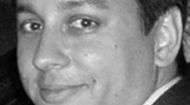After 25 years, Oprah Winfrey’s history-making TV show has come to an end – and so has The Era of the Analog Celebrity. In many ways, Oprah defined what it meant to be a celebrity in the analog age – the age before Twitter, Facebook, Foursquare and the constant need to optimize your Google search results.
Oprah dominated TV, radio and print – the three media communication channels that are distinctively analog — and also the media communication channels that made Oprah so intensely personal, face-to-face and one-on-one. Digital media may be more social than Analog media, but it is no longer about the face-to-face and the one-on-one. The scale of the Internet is simply too large, there are simply too many devices on which to consume content.
If you watched Oprah on TV, you made time in your daily life to watch her. If you read O magazine, this was a lifestyle choice that accompanied you through your most private and inspirational moments. The Age of the Analog Celebrity was all about the full experience, not the bite-size digital chunks. You were meant to watch the full television show, read the full magazine, and give your full attention to Oprah. It was never about seeing Oprah’s tweets pop up in your Twitter-stream every few hours, or seeing her Facebook status updates attractively displayed on Flipboard, next to your friend’s photos of a trip to Disney World.
While Oprah may have nearly 6 million fans on her Facebook page, these were fans that followed her to Facebook from TV. And, while we’re counting, doesn’t Red Bull now have 20 million Facebook fans. Doesn’t Starbucks have 22 million Facebook fans? There are quite possibly fans of Oprah who have tens of thousands fans themselves. In the Digital Age, you see, Oprah is no longer the uncontested queen of media.
Unlike Oprah, however, the new Digital Celebrity is not about the one-on-one or the highly interpersonal. It is, instead, about maximizing your presence across every digital platform, ensuring that you are top-of-mind anytime someone consumes media. The Analog Celebrity did not need a Facebook status update reminding you to tune in to the next Oprah show – this was something that you had permanently hard-wired in your brain. For 25 years, you knew exactly when and where to find her. You knew exactly where to get your Oprah fix. And that’s what made her so inspiring.
Who can follow in Oprah’s footsteps now that TV no longer can command the audiences it once did, now that people TiVo their television programs, now that people no longer subscribe to magazines the way they once did? What does it mean to be a celebrity these days, when everyone is a mini-celebrity themselves? When one’s digital presence must be shared across iPads, Nooks, Kindles, iPhones, Androids, and Blackberrys? The Digital Celebrity is not about the “tune-in” — it is about the continuous, real-time, 24/7 communication of your brand to the entire Internet.
And, make no mistake about it, there are Digital Celebrities who are doing it well. Just the other day, Ashton Kutcher was featured in the New York Times as the type of savvy Hollywood celebrity who “gets” the Internet. The same Ashton Kutcher who publicly challenged Larry King (another Analog Celebrity) to a race for the first 1 million Twitter followers. Even with his relationship with Demi Moore and his well-documented pranks, Ashton Kutcher was a B-list Analog Celebrity. On the Internet, though, he is without question an A-list celebrity. Welcome to the brave new world of the Digital Celebrity.
Original Post: http://bigthink.com/ideas/38627




